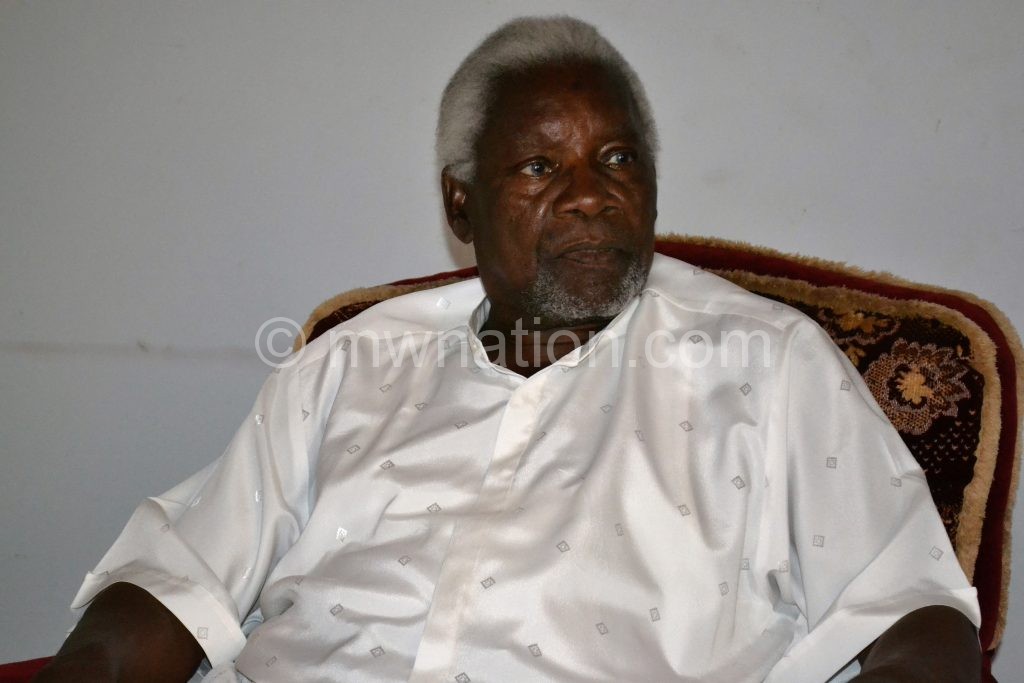Gwanda granted State funeral
The body of veteran politician Gwanda Chakuamba is expected to be interred at his home village in Nsanje District on Friday with full State honours, government and family members announced yesterday.
Chakuamba, who one of the few remaining longest serving politicians, succumbed to a long battle with heart complications on Tuesday while receiving treatment at Blantyre Adventist Hospital (BAH) where he was admitted on October 13.

People from all walks of life are expected to descend on Chinyanje Village in the area of Traditional Authority (T/A) Mlolo in the district to shed their final tears for a man who stamped a unique political chapter in the country.
Minister of Information and Communications Technology Malison Ndau said in a statement yesterday government was according the fallen hero a State funeral in recognition of the enormous contribution he made to the nation.
A State funeral is a public funeral service that observes strict rules of protocol held to honour deserved citizens of national significance.
Said Ndau in a statement: “Government joins all Malawians in extending condolences and great sympathies to the Chakuamba family and the nation on the loss of this brave nationalist.”
Chakuamba’s body will be taken from the College of Medicine mortuary today to Comesa Hall in Blantyre to allow the public pay their last respects.
The body will lie in state until Thursday for more people to say goodbye before the remains are taken to Nsanje just after noon for burial.
In an interview, former president Bakili Muluzi indicated he would be attending the burial ceremony while President Peter Mutharika was yet to decide, according to his press secretary Mgeme Kalilani.
Family spokesperson King Norman Rudi extended appreciation to government for according their relation a dignified burial.
Chakuamba, who died aged 82, would be remembered by as a nationalist who played a significant role during the struggle for independence in the late 1950s and early 1960s.





